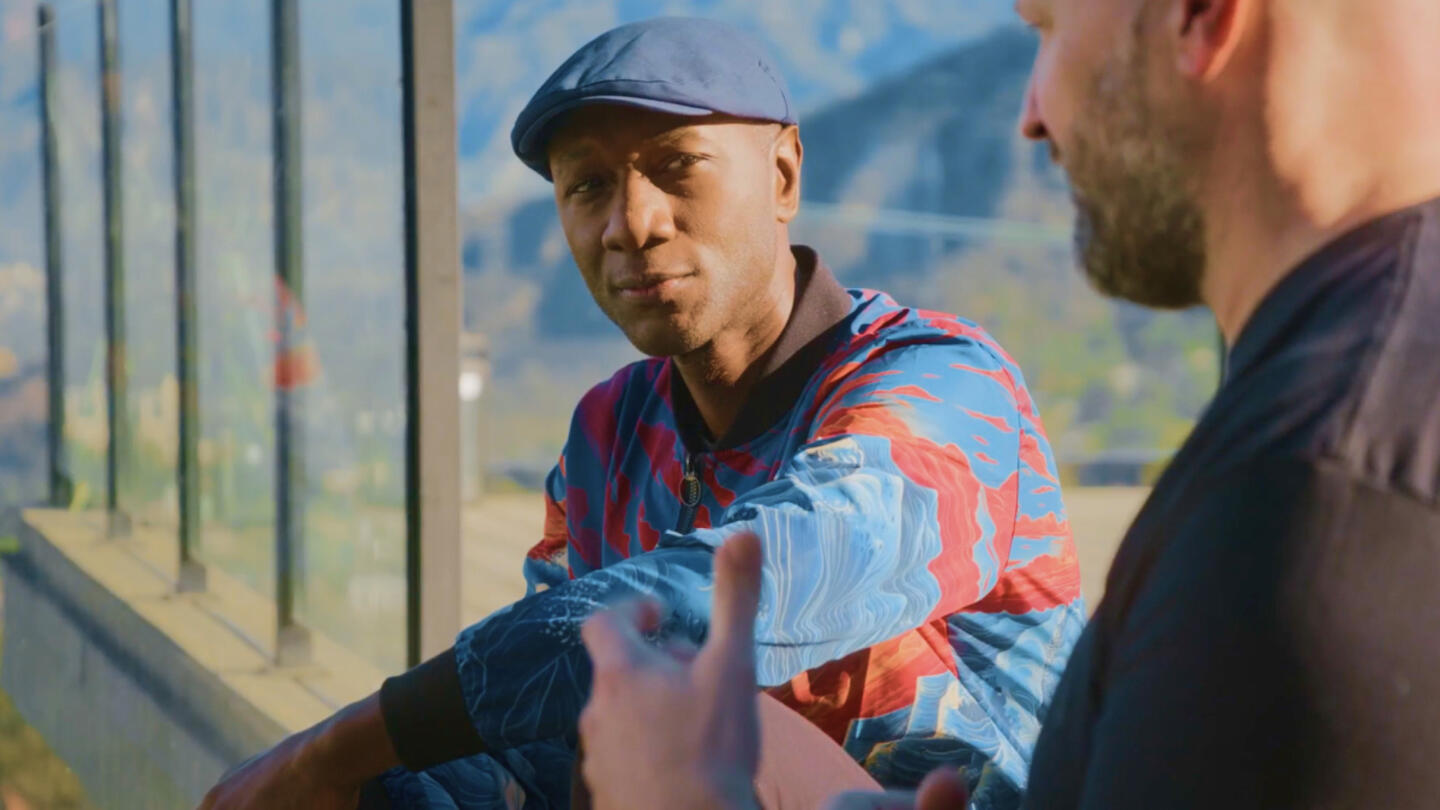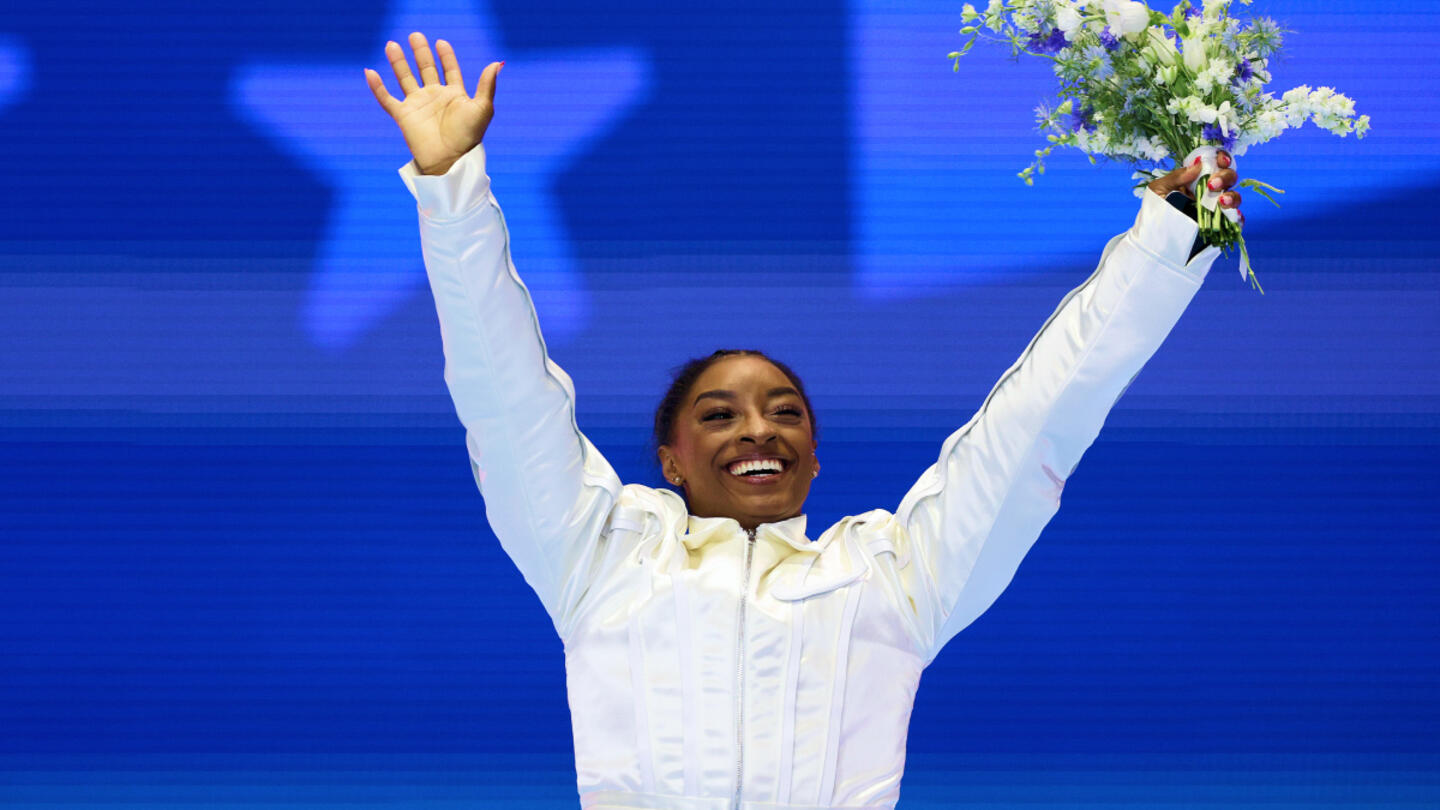She may make Olympic-level gymnastics look easy, but when Simone Biles was a child, her life was anything but simple.
Her biological mother struggled with substance use, so Biles and her siblings spent three years in the Houston area foster care system before being adopted by their grandparents. She overcame her rocky start to thrive, winning seven Olympic medals and becoming the most decorated gymnast in the world.
Her work with Friends of the Children – Houston is born of that struggle. Friends of the Children uses long-term mentorship to break the cycle of generational poverty, pairing under-resourced children with a long-term professional mentor. The organization began in Oregon in 1993 and has since spread to 37 locations nationwide, with its Houston chapter opening in 2023. Thousands of under-resourced children and their families have been uplifted using the power of positive, stable relationships and community support, with the organization teaming up with local partners to build a network around families.
Biles herself worked to bring Friends of the Children to Houston and has been a vocal advocate of the organization’s powerful impact. She dedicated her second Wheaties box appearance to Friends of the Children. This year, as she takes the world stage again in Paris, we’re checking in to see how the Houston chapter has grown.
Since August 2023, the chapter’s goals have gone from aspirational to very real: The first cohort of 24 youth and three mentors has recently been introduced, coinciding with Biles’ return to the Olympic stage later this month.
“It’s really exciting, what’s happening in Houston,” said Tre Maxie, executive director at Friends of the Children – Houston. “There’s a lot of symbolism to me about overcoming odds, persevering in the face of challenges, and creating something new.”
Ahead of the 2024 Olympics, both Biles’ story and the core values of the competition are inspiring and uplifting the newest cohort of families in Houston and beyond. It’s the perfect time to remind the world how the relationships and community formed at Friends of the Children – Houston contribute to the long-term success of children in the foster system like Biles and to the society they’re a part of.
The power of staying local and staying long
Maxie has worked all over the world throughout his career, but it’s particularly meaningful for him to be back in Texas, his home state. As a member of the local community, he knows how best to create change there. Friends of the Children operates in the same way.
Friends — the professional mentors of Friends of the Children — are themselves part of the local community. As people who are familiar with their town, they’re the closest to the problem and best positioned to help design a bottom-up solution. Besides mentors, Friends of the Children also includes local community partners and board members as part of its network, including local school districts and welfare agencies.
Not to mention Biles, who serves as a patron to the organization as someone with lived experience as a foster child from the area.
“One of the exciting things about Simone bringing Friends to Houston, which is her hometown, is her background as a foster kid,” Maxie said. “She can relate to a lot of our kids who are either foster kids or have some instabilities in their life. To have a model where you have community members raise their hand and say, ‘I want to work with this kid for 12 years,’ it’s tremendous. It has the potential to really transform the lives of some of our children, who have more challenges than any person should have, much less a child.”
Beyond the community-first method, there’s another key ingredient to the Friends model that makes the organization particularly effective: longevity. Many programs work with foster families for a year or two max, but Friends of the Children stays alongside them for 12 years.
Houston’s inaugural cohort is made up of children between the ages of 4 and 6 because they’re paired with mentors for a long road ahead: “The idea is the friend is establishing this trusting relationship that will go through high school graduation and beyond,” Maxie said.
Although the Houston chapter is just beginning, Friends of the Children’s 30-plus-year run has allowed its members to observe the long-term impacts of its model. Time and time again, they’ve seen friends “become an extended family member,” said Maxie. “They go to the family homes. They get invited to family events. They become sort of like uncle, auntie, cousin. … That impact is just in the first six, seven, eight months. Imagine what’s going to happen next year and the next year.”
That’s what Friends of the Children refers to as “2Gen,” the multigenerational impact of walking alongside youth and their families. The transformation the Friends model has on its youth and families can be dramatic, both immediately and over the years: 93% of its youth stay out of the juvenile justice system, 83% graduate from high school or achieve a GED, and 92% go on to enroll in higher education, join the military, or enter the workforce.
Maxie remembered a youth who was experiencing many behavioral challenges at the age of 6. After being partnered with a Friend as a mentor, “now, he has grown so much. He has now entered youth flag football, and youth football is not just about football. It’s about community, respect, responsibility, working with the team. This student has had a lot of challenges at home and a lot of things happening with this family, but in that consistent relationship with the Friend, he’s been able to find his footing.”
“Children are innocent,” Maxie continued. “They don’t select their families. They don’t select where they’re going to live. People have different challenges, and so to have a friend that is going to be safe, is going to be consistent, and is going to help you discover your gifts and talents is great. To have a community rally around you is extraordinary. To have someone like Simone Biles be a champion for you is unbelievable.”
Sign up for the Strong & Safe Communities newsletter for stories, ideas, and advice from changemakers working with their neighbors to address the biggest problems we face.
Olympic values aren’t just for athletes
The Olympics start on July 26 this year, and as the country eagerly awaits Biles’ return to the gymnastics mat, perhaps no one is more excited than the team at Friends of the Children. For them, Biles’ performance isn’t just impressive — it’s personal.
“The Olympics are about perseverance,” Maxie said. “They’re about consistency. They’re about competitiveness, and they’re about teamwork.”
Those are the same themes that Friends of the Children – Houston hopes to instill in youth, so while the Olympic Games take place, the chapter will be running a local youth version alongside the international one. Local youth and their families will participate in obstacle courses and small competitions, but a medal isn’t the goal. Instead, it’s “to elevate those [themes] that can be crossed into their lives,” Maxie said.
Friends of the Children – Houston is also using the Olympics to create a Champion’s Circle in Houston, made up of those who support local young people through volunteering, donations, or any other way. It’s all a part of strengthening that extended family and support system that Friends uses to surround and uplift disadvantaged youth.
“We are leveraging the values of athletes and what it takes to be an Olympian,” Maxie said. “That discipline and hard work and consistency and teamwork, we’re bringing that into the ecosystem of young people and families and [seeing] how that shows up at school, how that shows up with behavior, how it shows up with how you interact as a young person. You may not be a great gymnast, but you could be a great sister or brother or a great school member. Those themes that Olympians need to have to compete at the greatest level, those can be imparted into young people’s lives.”
Friends of the Children – Houston is currently preparing to recruit its second cohort of youth in the fall, which will probably include 24 young people and ultimately encompass around 200 in total when their brothers, sisters, cousins, caregivers, and all who will be affected are included. The organization’s hope for the year ahead is that the Houston community will grow even larger and stronger to be able to continue providing lasting support to disadvantaged youth and show them what’s possible.
Other chapters from Friends of the Children lay out a promising road ahead. Many have been operating for multiple decades, serving hundreds of youth and expanding every year.
“They’re young,” Maxie said. “So they’re looking at [Biles] thinking, ‘Wow. She was like me, she had these challenges and the things I’m facing, and now look at her.’”
“The sky is literally the limit with Simone,” Maxie said. Although, as he pointed out, that may be putting too much of a barrier in the way: “Maybe not — because when she does those flips, she goes beyond.”
***
Friends of the Children is supported by Stand Together Foundation, which partners with the nation’s most transformative nonprofits to break the cycle of poverty.
Learn more about Stand Together’s efforts to build strong and safe communities and explore ways you can partner with us.

At this ‘resort,’ children with intellectual disabilities are seen as gifts to be celebrated and loved.

Veterans experience loss when leaving service. Could this be key to understanding their mental health?

The Grammy-nominated artist is highlighting the stories we don’t get to hear every day.

With his latest project, Blacc isn’t just amplifying stories — he’s stepping into them
